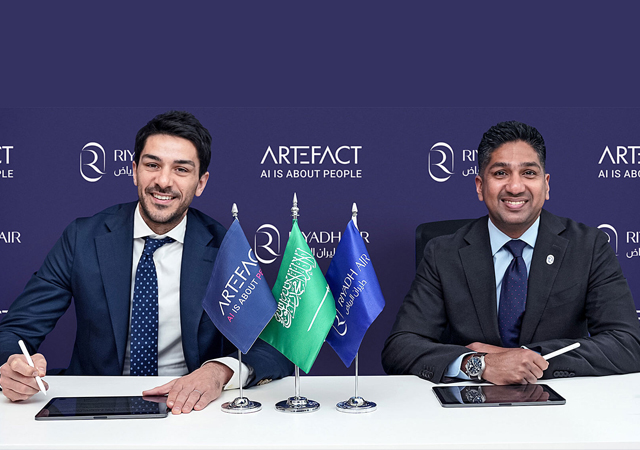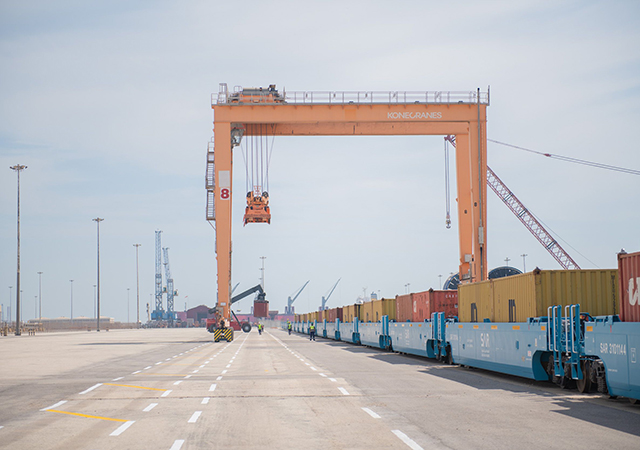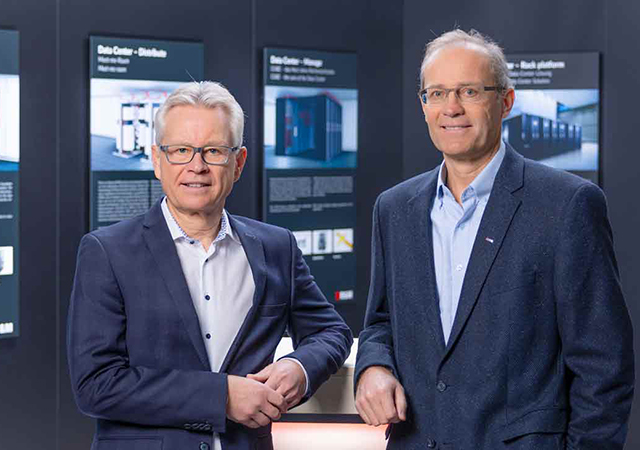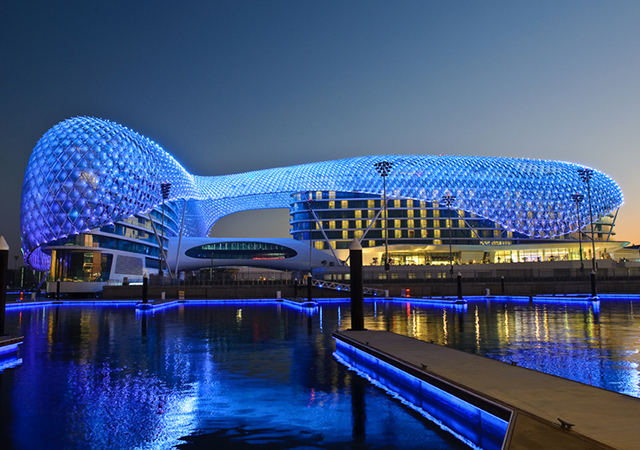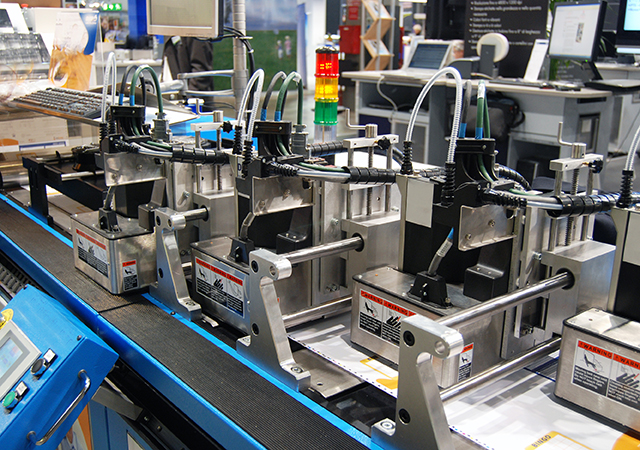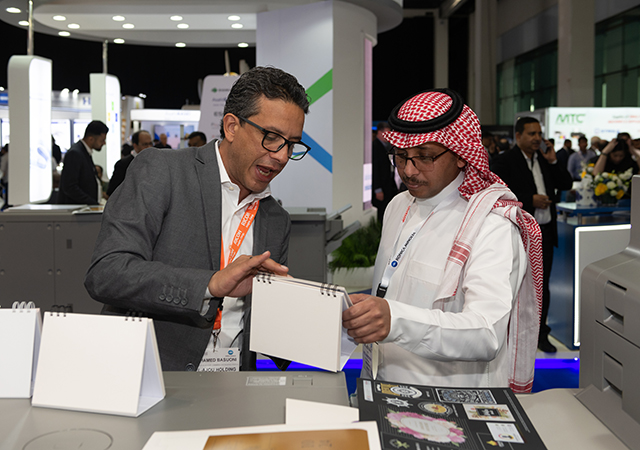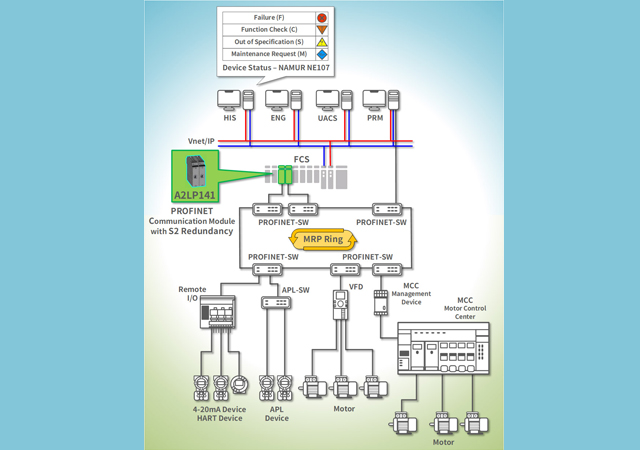
 Hopper silos with 25,000 cu m capacity
Hopper silos with 25,000 cu m capacity
The Gulf countries offer a prime location for a central bank of food grains because of their exemplary security, and Bahrain is ideal because of its modern port facilities, according to Mikhail-Shamil Orlov, an influential Russian food investor and expert.
In an interview with Gulf Industry, Orlov said there is a need to build food reserves considering the growing imbalance between food demand and supply because of a burgeoning world population. Food shortage, he added could pose a real political threat to
governments.
Orlov is president of the Russian-Egyptian Business Council and is the grandson of the late King Farouk of Egypt. He was born to Princess Fadia–youngest daughter of late King Farouk of Egypt–and Pierre Alexievitch Orloff–a descendant of the Russian royal family.
He is also on the board of a dedicated project, called Agrofinmost, which was set up last year by Russia-based HSE-Skolkovo Institute for Law and Development. The board is chaired by Mufti Muhammad Taqi Usmani, a leading scholar of Islamic finance and chairman of the Bahrain based Accounting and Auditing Organisation for Islamic Financial Institutions (AAOIFI).
For the project, Orlov suggested two storage models. One, he said was for countries incapable of producing their own food. He said such countries should, at least, have two years of food supply to counter market volatility, such as the global rice crisis of 2007-08.
“Two years allow enough lead time for replenishing reserves at the next harvest, when prices are much lower than market prices,” he said.
Another storage model, he said, could be used to establish a stabilisation or intervention fund, and warned that food shortage he said could easily lead to social unrest and conflict. Such a fund would allow flow of food to affected areas or countries.
Orlov said the storage facilities could be built anywhere, but the Middle East has a strong potential because of its importance in the Muslim world. There was also an impressive solidarity among Muslim countries where the richer ones wanted to help the poor ones, he added.
 |
Orlov: calling for building food reserves |
He said a grain storage bank in the Gulf can offset any volatility on the market anywhere in the Muslim world by supplying to markets that require stability.
Orlov said Russia was currently the world’s largest wheat exporter and a country with the largest arable land. Its food production was over and above domestic consumption and, therefore, could serve as the main asset.
Also, by building storage facilities in different locations, the importing countries could also minimise what some term as the ‘Russian risk’. But even then, there were other suppliers like Kazakhstan, Ukraine, etc.
Orlov said one of the concepts of the Agrofinmost project was to connect the buyer directly with the crop producers thereby insulating the former from speculative prices, which could fluctuate as much as 40 per cent.
According to Orlov, the state-of-the-art facilities could be part of wider food clusters, which would not only include food storage facilities and terminals but processing units as well.
“Having such massive food processing clusters close to a grain storage facility would not only address the needs for processed quality food, but could also allow a country like Bahrain to become an exporter of food,” he said.
Having adjacent processing units can also offer solutions to challenges, which create an inflationary pressure inside the food value chain, such as traders, transport issues, customs, dealers, waste, theft, etc.
He said: “These clusters not only offer a way to localise the food value chain and add value to the economy, but they also add to the country’s food security.”
They will also create centres of competence, where education becomes important and there is focus on managerial and technical know-how, therefore, positively impacting the targeted countries by increasing the professional abilities of its workforce.
Without disclosing names and locations, Orlov said his team was already in negotiations with four governments in the region for the projects.
About the size of investment, he gives a ballpark figure of € 270 to 350 per tonne of capacity. But said this figure could go up in destination countries where infrastructure was weak or absent and where investment in ports, docks, roads, railway lines, electricity was an imperative to house such a project.
For investors willing to put their money in the food processing cluster model, Orlov said the return was quick. “These clusters are highly efficient. And the payback period compared to an investment in another industry was, at least, 20 per cent shorter,” he said.
Orlov said it was his personal struggle to see that people had their essential basic needs such as food covered. He said the world produced more food than humanity’s needs and believes it is abnormal, unethical and unfair to see steep volatility in food prices such that it deprived people.
That is why, he said, Islamic finance was the natural ally here as one of the cornerstones of Islamic finance was ethics and fairness.
Agrofinmost will use Islamic finance instruments to attract investments from Muslim countries into the Russian agricultural sector and in return establish sustainable channels for food supply to Muslim countries.
Orlov said Agrofinmost has received the blessings of the spiritual, political and financial authorities in the Muslim world.
Overall, the Agrofinmost project offers numerous benefits for both the exporter (Russia) and importing countries--mostly Muslim and where the demand for food security is high, said a spokesman for the project.
He said it allows for developing more stable and less speculative relations with food suppliers, while creating a source for cheaper grain by eliminating unnecessary middlemen. It will also allow the development of new logistic routes to Muslim countries, including using the North-South international transport corridor.
However, a consistent supply of funds from the importing countries could be a challenge as would be the development of Russia’s export infrastructure to meet demand.
In May last year, Russian President Vladimir Putin issued a decree to increase the country’s agricultural exports from the current $24 billion to $45 billion in 2024. Russia is well positioned to do that because of its vast expanses of arable land.
According to estimates, Russia has the potential to produce up to an excess of $100 million tonnes of grain over its domestic consumption making it a leading grain supplier. Over the last 20 years, Russia has achieved a two-fold increase in grain production–from 65.4 million tonnes in 2000 to 135.3 million tonnes in 2017, converting the country from a net importer to a net exporter.
The Agrofinmost project has the potential to bring in billions of dollars’ worth of investments into various aspects of the food production/supply chain including hub elevators and grain storages, development and expansion of port capacity, grain hoppers, and transport systems.


